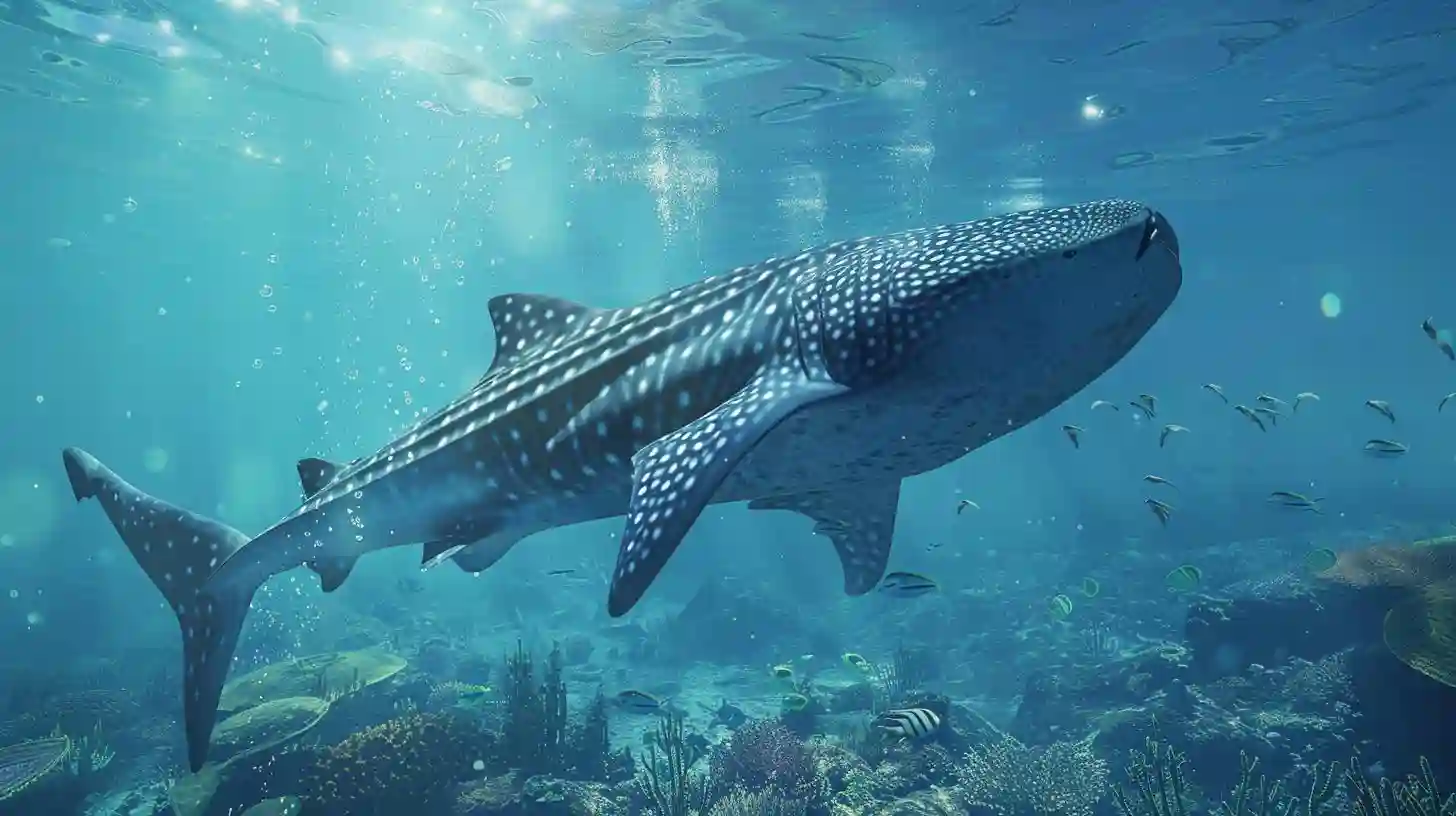
Whale sharks are truly amazing creatures that capture the imagination of people around the world. These gentle giants of the ocean are the largest fish in the world, reaching lengths of up to 40 feet and weighing up to 20 tons. With their distinctive spotted pattern and enormous size, they truly are a sight to behold for anyone lucky enough to encounter them in the wild.
Whale sharks are found in tropical and warm oceans around the world, with populations found in the Atlantic, Pacific and Indian Oceans. They are known for their migratory nature, traveling thousands of miles each year in search of food and suitable mating sites. Despite their size, whale sharks are filter feeders, meaning they primarily feed on plankton, small fish and other tiny organisms that they filter from the water as they swim. They have a wide, gaping mouth that can open nearly four feet wide, allowing them to absorb large amounts of water and filter food using gill rakes.
One of the most remarkable features of whale sharks is their longevity. These creatures are known to live for over 100 years, making them some of the oldest living things on the planet. They are also incredibly resilient, able to withstand changes in water temperature and other environmental factors that can be a problem for other marine species. Despite their size, whale sharks are known for their gentle nature and are not generally considered a threat to humans. In fact, many divers and snorkelers seek out opportunities to swim with whale sharks as they are considered one of the most impressive animals in the ocean.
Conservation efforts are critical to ensuring the survival of whale sharks and other marine species. These animals face threats such as habitat destruction, pollution and overfishing, which can have a significant impact on their populations. Organizations around the world work to protect whale sharks through research, education and advocacy. By raising awareness of the importance of these creatures and the need to protect their habitat, we can help ensure that future generations can admire the beauty and majesty of these amazing animals.
One of the key problems facing whale sharks is bycatch, which occurs when these animals become entangled in fishing nets or other gear intended for other species. This can lead to injury or death to whale sharks and is a major concern for conservationists working to protect these creatures. By implementing bycatch reduction regulations and guidelines, we can help ensure that whale sharks can thrive in their natural habitat.
Another important aspect of whale shark conservation is the need to better understand their behavior and migration patterns. Scientists are studying the movements of these animals using satellite tracking technology, which allows them to track the movements of individual whale sharks in real time. By learning more about where whale sharks go and what habitats they depend on, we can protect these areas and ensure that whale sharks have the resources they need to survive.
In addition to their ecological significance, whale sharks also have cultural significance to many people around the world. These majestic creatures have inspired awe and wonder in humans for centuries and are often seen as symbols of strength, resilience and harmony with the natural world. In many cultures, whale sharks are revered as sacred animals and are the subject of myths, legends and stories celebrating their beauty and strength.
Whale sharks are truly magnificent creatures that deserve our respect and protection. As the world's largest fish, they play a critical role in maintaining the health of our oceans and are an inspiration to people of all ages. By working together to protect whale sharks and their habitat, we can ensure that these amazing animals will continue to thrive for generations to come. Let's all do what we can to protect the future of these gentle giants of the sea.